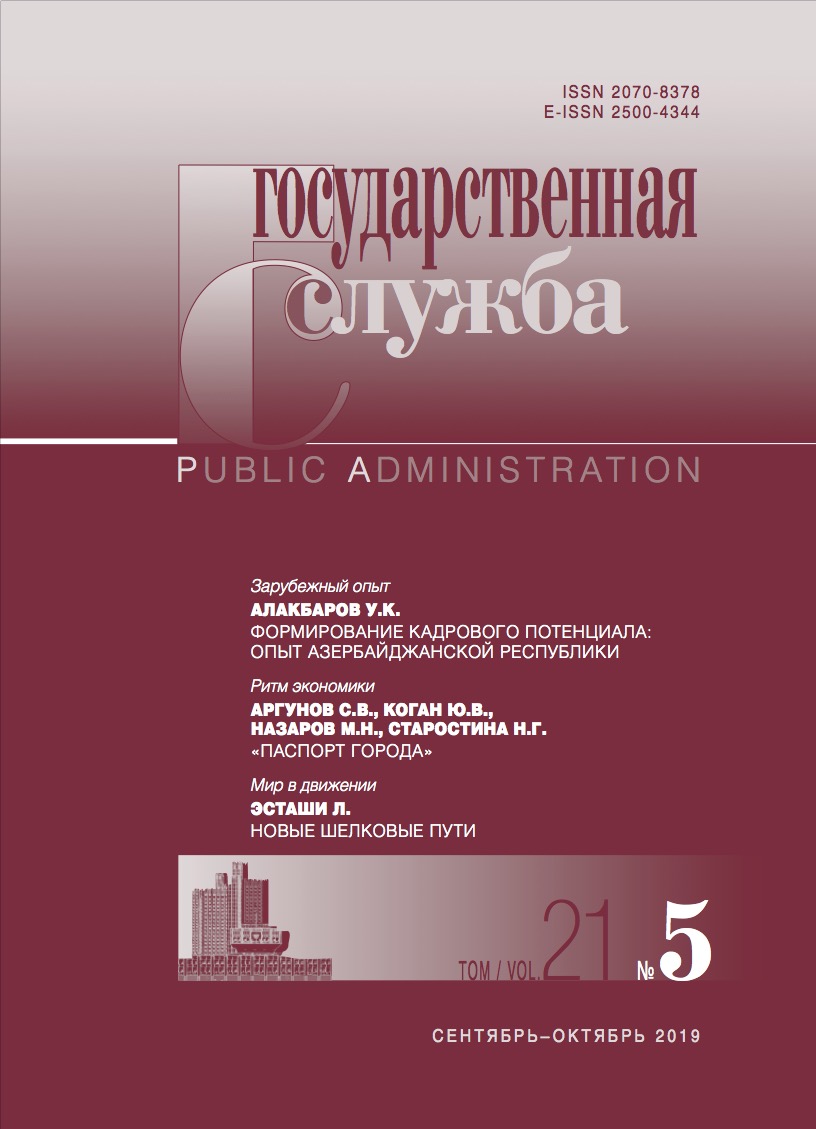Recommended link to article:
VLADIMIR V. VYALYKHа
аOrenburg State Medical University
DOI: 10.22394/2070-8378-2019-21-5-35-39
Abstract:
The article defines the phenomenon of mnemonic authoritarianism as one of the forms of modern non-democratic government practices. The article shows several types of mnemonic authoritarianism and their characteristics. One of the main ideas in the article is related to the fact that mnemonic authoritarianism as a form of government is based not only on politics, but also on culture, its norms and values. The relevance of the study lies in modern conditions, the fact that the ruling subject needs new forms of influence i.e., not just economic or political coercion. According to the author, mnemonic authoritarianism can be such a form of control, since it contributes to the solution of two major problems: firstly, it provides to the positive legitimization of the ruling subject, and secondly, it creates new possibilities for authority over society and the state. These possibilities are shown in the influence on the interpretation of various events of the historical past both by society and by the individual. The variety of forms of this influence, authoritarian or democratic, depends not only on the political or economic condition but also on the cultural norms that prevail in society and the state. The problem of mnemonic authoritarianism formation is connected with the importance of cultural heritage. It is associated not only with retention of the heritage of the past but also with its compliance to the realities of the present, which, in turn, can cause decentralization of memory for a single individual or a group, as well as society as a whole.
Keywords:
authoritarianism, mnemonic authoritarianism, culture, memory, politics of memory, past
Received:
October 24, 2019
References:
Ankersmit F. Sublime historical experience. M.: Europe, 2007. 612 p. In Russian
Burke L., Faulkner S. Introduction: Memory is ordinary // The politics of cultural memory / Ed. by Burke L., Faulkner S., Aulich J. Cambridge Scholars Publishing. 2010. P. 1–25. In English
Gorin D.G. Historical politics and the legitimation of power: nine features of ideas about the past in Russian culture. Politologiya: aktual’nyye aspekty. 2013. No. 4. P. 100–105. In Russian
Gulova A.B., Sidorova N.V. The problem of cultural heritage actualization. Ogaryov-online. 2016. No. 11: http://journal.mrsu.ru/ arts/problema-aktualizacii-kulturnogo-naslediya. In Russian
Meyer E. Memory and politics // Cultural memory studies: an international and interdisciplinary handbook / Ed. by Erll A., Nunning A. Walter de Gruyter GmbH & Co, 2008. P. 173–180. In English
Molodyakov V.E. The historical memory of the Japanese. Yezhegodnik Yaponiya. Istoriya. Istoricheskiye nauki. 2008. No. 37. P. 285–301. In Russian
Moses D. German intellectuals and the Nazi past. Cambridge University Press, 2007. P. 239–246. In English
Sazonova K. For the long memory. Guilt, repentance and compensation in world politics. Rossiya v global’noy politike. 2019 No. 3: https://globalaffairs.ru/number/Na-dolguyu-pamyat-20093. In Russian
Shnirelman V.A. Social memory and images of the past. Novoye proshloye. 2016. No. 1. P. 100–129. In Russian
Articles in Open Access mode are published under the Creative Commons Attribution 4.0 International (CC BY) license.

